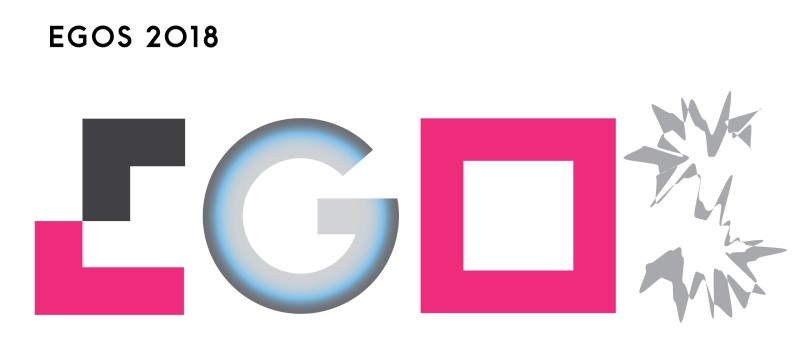Sub-theme 13: Co-workers, Hackers and Makers: Transforming and Making Visible Work Practices
Call for Papers
Cities and work practices in big cities have gone through major transformations since the early 2000s. Work transformations
– including the development of flexible and remote work, project-based work, teleworking, distributed work arrangements, Do
It Yourself (DIY) and the emergence of third and collaborative practices and spaces (e.g. co-working spaces, maker spaces,
innovation labs) exemplify how work increasingly gets performed outside the typical physical, spatial and temporal boundaries
of the organization or within the context of third spaces and liminal spaces (Sewell & Taskin, 2015; Spinuzzi, 2012; Moriset,
2014; Oldenburg, 1989). These developments can give workers a greater sense of flexibility, responsibility, empowerment, and
even freedom, as they tend to adjust their work practices and spaces to their personal habits, aspirations and ways of working,
instead of the contrary. Coworkers, makers and hackers epitomize, embody and catalyze those new work practices (Spinuzzi,
2012; Merkel, 2015; Coleman, 2016). More than ever, it is crucial to bring work back in organizational analysis (Barley &
Kunda, 2001).
Furthermore, new firms and business practices emerge from user entrepreneurs and peers who
attempt to make their passion a sustainable economic activity by integrating with communities or failing to do so (Haefliger
et al., 2010; Bardhi & Eckhardt, 2013; Figueiredo & Scaraboto, 2016). The availability of their services and material
objects is defining the type of peer-to-peer economy that jointly uses resources (Arnould & Rose, 2016) and we need much
more work to link the emergent collaborative practices of innovating and consuming to organizing.
Recently
(but with rare connections with new work practices), scholars have acknowledged the necessity to conceptualize practices,
processes, objects, technologies, bodies and embodiment in a world of work that make them more and more problematic and paradoxical
(see e.g. Dale, 2005; Orlikowski, 2007; Carlile et al., 2013; Introna, 2013; de Vaujany & Mitev, 2013). We want to follow
this invitation by analyzing the new work practices conveyed by co-workers, makers and hackers through concepts and theories
likely to shed light on their material, spatial and temporal dimensions. We welcome Marxist, post-marxist, practice, process,
phenomenological and sociomaterial perspectives (among others) to help elaborate relevant descriptions of new work practices
in the city. We also invite papers showing how collaborative spaces and collaborative movements represent new methodological
opportunities for scholars to observe, experiment and co-produce new work practices.
In the context of this sub-theme,
we welcome contributions that address the following themes:
New work practices and organizing in the context of collaborative communities and collaborative movements, new socialities of work in cities
Collaborative movements as social movements: new materiality, spatiality and temporality of work practices
Bodies and embodied practices in the context of collaborative spaces and collaborative movements
The material and ideational relationships between work transformations and collaborative communities
Collaborative communities, new work practices and new mobilities inside and between cities
Online communities of production and their relationship with embodied and localized work practices and practices of sharing
Material, spatial and temporal transformation of the city through these new socio-material infrastructures for collaborative work
End of organizations and new modalities of organizing in networks of collaborative consumption
References
- Arnould, E.J., & Rose A.S. (2016): “Mutuality: Critique and substitute for Belk’s ‘sharing’.” Marketing Theory, 16 (1), 75–99.Bardhi, F., & Eckhardt, G.M. (2012): “Access-based Consumption: The Case of Care Sharing.” Journal of Consumer Research, 39, 881–98.
- Barley, S.R., & Kunda, G. (2001): “Bringing work back in.” Organization Science, 12 (1), 76–95.
- Carlile, P.R., Nicolini, D., Langley, A., & Tsoukas, H. (eds.) (2013): How Matter Matters: Objects, Artifacts, and Materiality in Organization Studies (Vol. 3). Oxford: Oxford University Press.
- Coleman, G. (2011): “Hacker politics and publics.” Public Culture, 23 (3), 511–516.
- Dale, K. (2005): “Building a social materiality: Spatial and embodied politics in organizational control.” Organization, 12 (5), 649–678.
- de Vaujany, F.-X., & Mitev, N. (eds.) (2013): Materiality and Space. Organizations, Artefacts and Practices. London: Palgrave Macmillan.Figueiredo, B., & Scaraboto D. (2016): “The Systemic Creation of Value Through Circulation in Collaborative Consumer Networks.” Journal of Consumer Research, 43 (1), 509–533.
- Haefliger, S., Jäger, P., & von Krogh, G. (2010): “Under the radar: Industry entry by user entrepreneurs.” Research Policy, 39 (9), 1198–1213.
- Introna, L.D. (2013): “Epilogue: Performativity and the becoming of sociomaterial assemblages.” In: F.-X. de Vaujany & N. (eds.): Materiality and Space: Organizations, Artefacts and Practices. Basingstoke: Palgrave Macmillan, 330–342.
- Kornberger, M., & Clegg, S.R. (2004): “Bringing space back in: Organizing the generative building.” Organization Studies, 25 (7), 1095–1114.
- Merkel, J. (2015): “Coworking in the city.” ephemera, 15 (1), 121.
- Moriset, B. (2014): “Building new places of the creative economy. The rise of coworking spaces.” Paper presented at the 2nd Geography of Innovation International Conference 2014, Utrecht, The Netherlands, January 23–25, 2014.
- Oldenburg, R. (1989): The Great Good Place: Cafes, Coffee Shops, Community Centers, Beauty Parlors, General Stores, Bars, Hangouts, and How They Get You Through the Day. New York: Paragon House.
- Orlikowski, W.J. (2007): “Sociomaterial practices: Exploring technology at work.” Organization Studies, 28 (9), 1435–1448.
- Schor, J.B., & Fitzmaurice, C.J. (2015): “Collaborating and Connecting: The Emergence of the Sharing Economy.” In: L. Reisch & J. Thogersen (eds.): Handbook on Research on Sustainable Consumption: Cheltenham: Edward Elgar, 410–425.
- Sewell, G., & Taskin, L., (2015): “Out of sight, out of mind in a new world of work? Autonomy, control, and spatiotemporal scaling in telework.” Organization Studies, 36 (11), 1507–1529.
- Spinuzzi, C. (2012): “Working alone together coworking as emergent collaborative activity.” Journal of Business and Technical Communication, 26 (4), 399–441.


